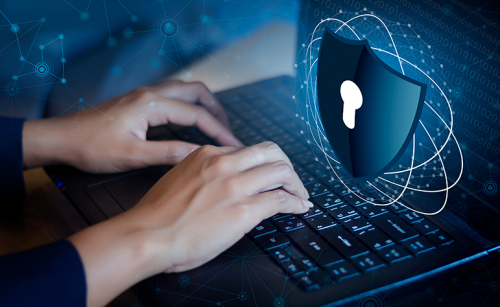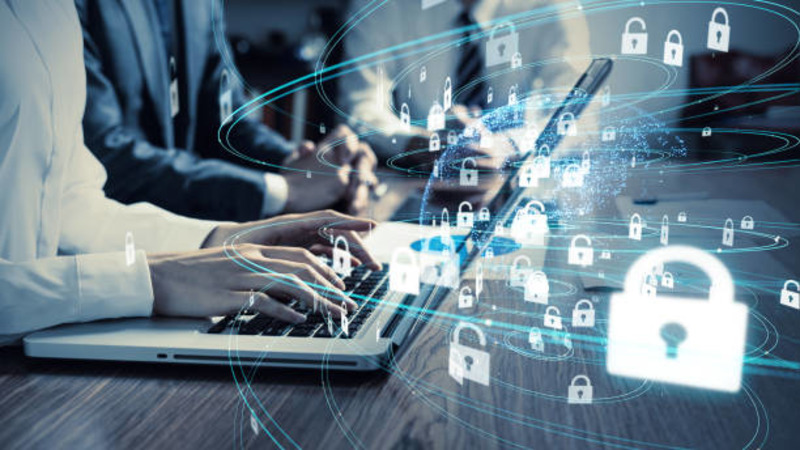
How to positively deal with Cybersecurity and COVID-19 impact?
Living in the digital age brings us more close to the topic of cybersecurity and COVID-19 impact. However, if we look closely to this aspect, we’ll get to know that it’s not just the pandemic that we are dealing with. The global pandemic has opened the door for various e-learning platforms for students where they get to learn things digitally. But with the promise of e-learning, comes the challenge of cybersecurity and COVID-19.
We all are aware of this fact that these two aspects do not pair well in the outside world. The challenge here is that most of the online platforms that are used for academic purposes or businesses are being certainly attacked by cybercrimes. Therefore, the main purpose of this blog is to help individuals secure themselves from cyber attacks and the risen impact of COVID-19.
In the past few weeks, there have been many cyber-attacks, and their propensity has actually increased for a few days. There has been a substantial increase in the addition of new zoom accounts this year, and around 4% of them are found to be suspicious. Many e-learning platforms like zoom are under threat these days. Many video-conferencing platforms publicly display the meeting ID to attract more students to their portal, and hackers use this as an opportunity to potentially risk the class and create mayhem in the online lecture.
In addition to this, comes the unmindful installation of malicious software. At times, while learning things online, we forget to check the authenticity of any URL or website and delve ourselves into a plethora of problems. It might seem harmless to us at first glance, but some websites that look credible prompt us for some installations. And because we want to visit their content further, we go ahead with all those unmindful installations that are required. And most of them here are often malicious, which end up stealing our personal data and sensitive information.
The first phase here was all about cyber attacks and installation of malicious software, and the other one puts us into the fraudulent discount trap. Many e-learning platforms offer huge discounts to individuals, and because of this, we again forget to check the authenticity of that page. We don’t bother checking about its credibility and put our personal information and data (bank details) at stake.
The solutions to Cyberattacks during COVID-19
Under this pandemic, we all are witnessing a tough time. Whether it’s about education or employment, everything is at stake due to the conditions brought up by COVID-19. So are the e-learning platforms that are trying their best to protect students and come out as a responsible educator in the digital space. Being a consumer, it is our duty to safeguard ourselves from such malicious attacks, and so we have provided a few tips on it that can be followed carefully to protect ourselves from such concerns.
Protect your data
Many of us, whether knowingly or unknowingly, store private data on our computers and laptops, which needs to be protected from cyber-attacks. Similarly, the data on e-learning platforms also require protection from such digital acts. Here’s what we can do to protect ourselves in times of COVID-19 and cybersecurity-
Create strong passwords: This is one of the best ways to help protect your data from harmful cyber attacks. Make sure that you don’t use easy to guess passwords like your name or date of birth. Instead, create a strong eight-character password, with a combination of alphabets, numbers and symbols.
Delete your data: Keep a daily check on your data and delete it simultaneously when it is of no use to you.
Be cautious while giving permissions: There are times when certain websites ask access to your email address and data. And just because they are free, you simply give straight access to them, opening up the gates to your personal data. All you need to do is avoid that and grant permissions very cautiously.
Protection against suspicious links
Phishing attacks and identity thefts are common these days. Here are some ways that can help you deal with such situation-
Never click on suspicious links: If anything looks fishy to you, don’t click on it. There are many malicious websites that send you spam emails that look quite similar to your e-learning platforms. Don’t fall for their trap by putting your information and data at risk.
Check authenticity: You should check the portals before submitting any information to their platform. This will help you check their credibility and how fake or true they are to their sense.
Use a good anti-virus
It is crucial to have a strong anti-virus to help protect your data and personal information. Even if you click on some malicious link or pop-up message, the anti-virus will protect you from its consequences and will notify you that your security is at risk.
So these were simple and beneficial ways that can help individuals protect their data in the digital space. Apart from this, if you require help regarding your academic assignments or projects, feel free to contact our online assignment writing services for professional help and guidance.






